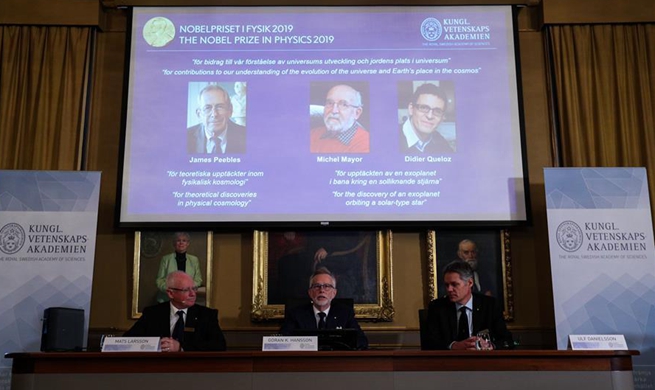GENEVA, Oct. 8 (Xinhua) -- Ageing populations, changing lifestyles and limited access to eye care, particularly in low- and middle-income countries, are among the main drivers of the rising numbers of people living with vision impairment, according to the world's first report on vision released by the World Health Organization (WHO) on Tuesday.
All in all, at least 2.2 billion people worldwide have vision impairment or blindness, of which over 1 billion cases could have been prevented or have yet to be addressed, because they do not get the needed care for conditions like short and far sightedness, glaucoma and cataract, according to the report.
It identifies other main causes behind rising cases of vision impairment globally, including increased time spent indoors and increased "near work" activities which are leading to more people suffering from myopia. Increased outdoor time can reduce this risk, the report advises.
Additionally, a growing number of people with diabetes, particularly type two, are being impacted, with nearly all of them having some form of retinopathy in their lifetimes. Routine eye checks and good diabetes control can protect people's vision from this condition.
Another driver of the most common eye condition is late detection, the report says. Due to weak or poorly integrated eye care services, many people lack access to routine checks that can detect conditions and lead to the delivery of appropriate preventive care or treatment.
To properly address these impacts, the report suggests stronger integration of eye care within national health services, including at primary health care level, to ensure that the eye care needs of more people are covered, including through prevention, early detection, treatment and rehabilitation.
"People who need eye care must be able to receive quality interventions without suffering financial hardship," says WHO Director-General Tedros Adhanom Ghebreyesus. "Including eye care in national health plans and essential packages of care is an important part of every country's journey towards universal health coverage."
The report estimates that some 14.3 billion U.S. dollars is needed to address the backlog of 1 billion people living with vision impairment or blindness due to short and far sightedness, and cataracts.

















